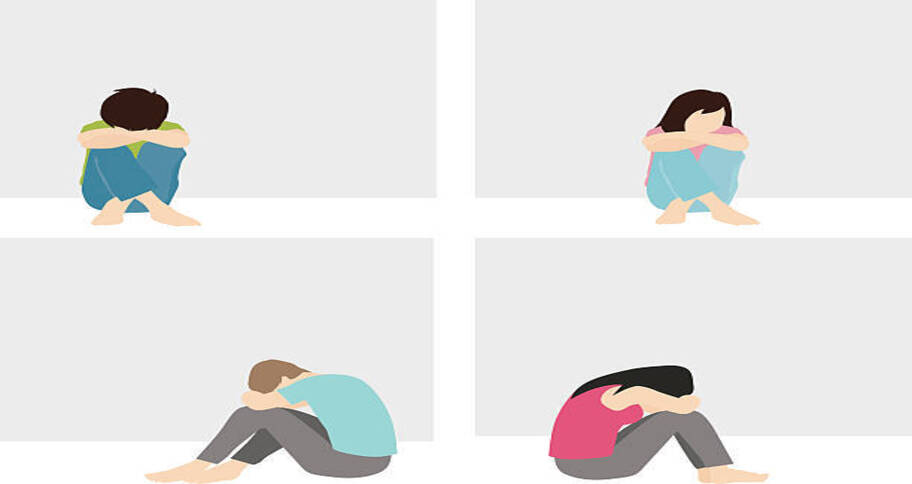Child Psychology Tips & No Empty Promises and Hollow Threats to Kids
Divya Chopra |
Parents Corner |
2024-08-09 |
null mins read

Table of Contents
Understanding Kids with Child Psychology
As parents, we often make empty promises and pose hollow threats to our children in order to keep them disciplined and perform an activity in a certain way. However, what we do not realize is that these empty promises and hollow threats can harm your child’s psychology and their well-being. You can always find alternatives to correct your child’s behaviour and that is exactly what we will be helping you with as you progress reading!
Child Psychology Tip 1 & Do Not Make Empty Promises
What is an empty promise?
“Don’t make promises you don’t intend to keep.”
This accounts for the definition of an empty promise – a promise made that was not meant to be fulfilled in the first place. It’s not you, it’s all of us!
Being a parent is never easy. It requires a considerable amount of patience and lots of trial and error to understand what is the right way to handle our kids and what is affecting the pattern of their behaviour. A common practice noticed among parents is to make their kids agree to do something in exchange of a promise.
For instance, a mother may promise her child to give her a chocolate if she puts all her toys back in a box after playing. Kids being their innocent selves, believe for the promise to get fulfilled immediately after they do what is asked of them. The mother’s intention could be for her child to become independent and responsible for her belongings – putting the toys back to where it belongs after playing and receiving a chocolate as a reward for it.
While this practice may seem to work initially, it might become a habit on the part of your child, expecting to get something in return each time she performs an activity or task. Once this habit starts to build up, it becomes quite difficult to come out of.
Often parents break the promises made, knowingly or unknowingly, which can harm your child’s psychology in ways you least expected.
5 Ways that Harm your Child's Psychology With Empty Promises
1. Trust Issues – All relationships are based on trust. By not keeping your word, you instil an image in your child’s mind that you cannot be trusted. This can lead to trust issues in your child’s future life, be it personal or professional.
2. Bribing – The idea of do-this-to-get-this is a subtle form of bribing. As a child, he may not understand what this means but when he grows up to be an adult, he might take this practice as a way to get things done and may put himself in trouble with crimes related to bribery.
3. Low Self-esteem – Not receiving things as promised after doing the work may lower your child’s self-esteem. She will blame herself for not being good enough to receive a reward for her work as promised and this can hinder her self-confidence.

4. Sense of Security – It is a well-known fact that we feel secure around the people we can trust. If your child finds it difficult to trust you, he will most likely not feel secure with you even at home.
5. Honesty – Every child is taught the phrase “ Honesty is the best policy”. When you make a promise to your child, they assume you would be honest about it and keep your word. When you break that promise for any reason, they will find you being dishonest and will stop believing in that phrase.
Another common practice seen among parents is to give hollow threats to their child. It is usually done when the parents are angry or want to showcase authority in front of their child. Even if it is done to make your little tot behave properly or tell them to stop throwing tantrums, it harms their attitude and may also disrupt their behaviour in a social environment.
Child Psychology Tip 2 & No Hollow Threats
A hollow or an empty threat is one which is never intended to be performed. “If you don’t wake up early tomorrow, I will not give you breakfast.” – such a threat may prove your authority in front of your child but your efforts might go in vain most of the time. Instead of beating around the bush, try to understand the psychology of your child by simply having a conversation with them!

1. Researchers believe that posing empty threats on your child makes them stubborn and develop a thick skin towards your punishments or consequences of their actions. In fact, it makes them more undisciplined and aggressive.
2. Constant threats to your child may develop a sense of fear of you, making it difficult for her to open up to you and share her feelings.
3. Your child may develop a trait of threatening people in the future which may affect his social and professional skills.
4. This acquired trait can be passed onto her next generation, making it difficult for her to cope up with her children or partner.
Alternative Ways to Manage your Child's Behaviour
1. Practice what you Preach – If you want them to clean up their toys, or finish their work within a given time or be polite to others, you, as a parent, need to show her how it is done. Make sure your child is watching you do a certain activity such as cleaning your room. Kids are great observers of things. So watch them catch up soon and incorporate your way of doing things in their own activities!
2. Seek Help – While doing your work, ask your child to provide a helping hand. This will not only teach them how to help others but will also provide a learning session of how a task is done and build concentration. For instance, ask them to fill up a glass of water for you or help in folding napkins.

3. Benefits of Performing Tasks – Instead of promising them a reward for their work, explain to them the benefits of doing a task correctly. For example, if you ask your little one to wash her hands before and after having a meal, tell her how it helps in preventing germs to travel inside her body and maintain hygiene. This will provide her with valuable information and learn good habits.
4. Be Polite and make them Aware – If your child is misbehaving, sit with them and tell them about all the possible consequences of their actions. Explaining them with a few real-life or fictional examples of people can go a long way. The key is to be polite!
5. Performing Recreational Activities – When your child throws tantrums, invite them to perform some fun and recreational activities with you. This could be doing light exercise, yoga, dancing, or simply playing an outdoor game! Kids love anything that involves a physical activity. Indulging in such activities would definitely act as a stress-buster for your kids and provide quality time to bond with your little ones!
6. Love and Encouragement – Kids experience a wave of emotions in a short period of time. Making them understand things and teaching them good manners and behaviour may take time. Don’t worry! Simply shower them with lots of love and words of encouragement when they do something right or by themselves and watch them succeed and grow!

Brief Conclusion
Kids are sensitive to emotions and reactions. Parents, being their first teachers, have an important role to play in shaping their little one’s behaviour. If they see you making empty promises and hollow threats to someone else, they will quickly catch up on it and may develop a habit out of it.
The way you act is bound to have an influence on how your child reacts. The golden ticket to overcome difficult times with your child is to communicate your concern to them, be patient and give them all the love! Don’t worry, you got this!
Also read..
7 Effective Ways To Promote Positive Behavior In Children Promote a harmonious environment by encouraging positive actions and behaviors in children.
5 truths about teens and dating revealed Uncover important insights about teenagers' relationships and dating experiences.
Kids and Mobile Phones…A Dangerous Friendship Explore the risks and challenges children face with excessive mobile phone use.
Other Related Sections
NCERT Solutions | Sample Papers | CBSE SYLLABUS| Calculators | Converters | Stories For Kids | Poems for kids | Practice Worksheets | Formulas I Parent Resources

